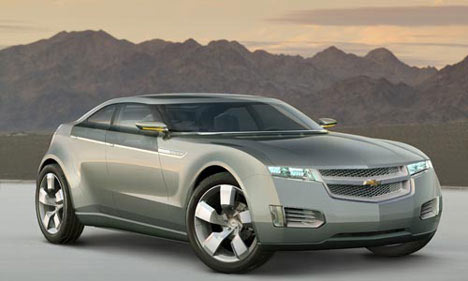The underused electrical capacity in the Northeast could be harnessed to power clean transportation.
A recent development from California brings us Mainers an opportunity to combine our frugal Yankee spirit with the fast-paced innovations of corporate America. A partnership between Ford Motor Company and utility provider Southern California Edison (SCE) could have far-reaching effects, and do a great deal of good for Maine along the way.
Ford and SCE announced last week a combined effort to examine the possibility of mass-produced plug-in hybrid cars running off of the nation's existing electrical grid. No extraordinary hydrogen delivery infrastructure needed here. Such an effort by these two forward-thinking corporations could revolutionize not only the auto industry and carbon emission norms, but also our existing electric power supply infrastructure.
I've been tooling around in an all-electric GEM (golf cart on steroids) car for several years; but find its 25 mph top end and 25-mile range between charge-ups problematic for anything but joy rides around Mount Desert Island. I'm also limited to operating on roads posted at 35 mph and lower with a "low-speed vehicle" plate.
A plug-in hybrid vehicle is one that can fill up at the gas station and also plug in to an electrical source. The vehicle's gas tank serves as a secondary source of fuel, while the car runs almost entirely off of its electric supply until that supply runs out (at which point you just plug it in again).
Plug-in hybrids could easily be expected to get over 100 miles per gallon of gasoline, and owners would do most of their refueling at home where the equivalent cost of electricity is about $1 per gallon.
Unlike my little GEM car, it's not hard to imagine Ford-SCE making plug-in hybrids on a large scale. Gas prices, while not becoming totally inconsequential, would matter much less to the average consumer. Pollution would decrease substantially.
Studies have shown that plug-in hybrids produce at least 67 percent fewer harmful emissions than a standard gasoline-powered car. Even when accounting for emissions from the production of electricity, national studies have shown greenhouse gas production would fall by almost 40 percent if plug-in hybrids became commonplace.
Now, if we could just agree with Professor Dick Hill at the University of Maine and build more nuclear power plants, we could reduce greenhouse gases without strangling our economy but that's for another column.
Of course the goal of making plug-in hybrids commonplace is one thing, but making this goal a reality is quite another or is it?
It would seem the biggest barrier to this goal lies in the creation of enough renewable electricity to power all those vehicles. Not so!
This seemingly formidable barrier is barely even a speed bump when looking at Maine's power supply that relies on our water, wind and biomass renewable resources.
Aha! It turns out there is excess capacity in Maine's electrical grid, to the point that all we need is to harness that excess. And how do we do that?
Simple, just plug the vehicles in at night. Just like my lawnmower, weed-whacker, portable drill and even my camera.
Each night across the Northeast, there is a large percentage of renewable power generation capacity that sits idle. This means there is a large amount of unused and under-used capacity in the existing electrical grid.
According to a recent U.S. Department of Energy study, there is so much excess capacity that if every light-duty car and truck in America today used plug-in hybrid technology, 73 percent of them could be plugged in and "fueled" without constructing a single new power plant. Not a bad thing these days.
Not only does this mean it is feasible to create a transportation culture based on plug-in hybrid technology, and not only would doing so cut the cost of driving and make our nation more climate friendly, but this could also lead to sizeable reductions in the cost of electricity across the country.
This is especially relevant here in Maine, where high electricity prices are a reality that must be addressed if we're to improve economic opportunities for our citizens. By fully utilizing the excess capacity already in our electric grid, it is simple economics that the price of electricity would drop.
As governments dither over ways to make electricity cheaper for the consumer, two private corporations, Ford and SCE, are making headway in doing just that.
Just as Dell and Hewlett-Packard worked with the Legislature when passing electronic waste reduction legislation during my last term in the Maine Senate, these two companies are to be commended for efforts to break ground in the field of plug-in hybrid technology.
Maine's public officials and citizens alike should recognize the importance of this program to our state and the nation.

